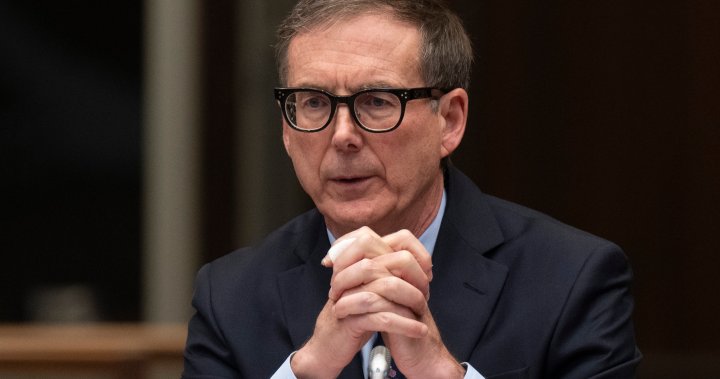
Lifting pandemic stimulus sooner would’ve limited inflation: Bank of Canada’s Macklem
Global News
Bank of Canada Governor Tiff Macklem was grilled by MPs about the central bank's policy and role in both fighting and fueling inflation at the House of Commons Finance Committee.
The Bank of Canada and the federal government could have taken their foot off the gas sooner when stimulating the economy during the COVID-19 pandemic, Governor Tiff Macklem said Wednesday, but he added that knowledge is only clear now with the benefit of hindsight.
Macklem and Senior Deputy Governor Carolyn Rogers spoke to the House of Commons’ Standing Committee on Finance Wednesday evening, where they were grilled by members of Parliament about the impact of higher interest rates on Canadians’ finances and on the central bank’s monetary policy decisions’ effects on inflation.
The bank’s benchmark interest rate has risen 3.5 percentage points since March in an effort to tamp down the rising cost of living, but Macklem said Wednesday that the Bank of Canada is “still far from its goal” of ensuring “low, stable, predictable” inflation.
The annual inflation rate held steady across Canada in October at 6.9 per cent — down from the peak of 8.1 per cent seen in June but still well above the central bank’s target of two per cent.
“This tightening phase will draw to a close. We are getting closer, but we are not there yet,” Macklem said.
The U.S. Federal Reserve, the Bank of Canada’s counterpart south of the border, has also suggested that the pace of rate hikes could soon slow, according to recently-released minutes from its meetings in early November.
But Macklem conceded Wednesday that inflation, while initially a globally-driven phenomenon with supply chain issues and the war in Ukraine, might not have gotten as bad if the central bank had stopped stimulating the economy sooner during the COVID-19 pandemic.
Between 2020 and 2021, interest rates were at a low 0.25 per cent and the bank was engaged in quantitative easing — adding more bonds to its balance sheet to further lower interest rates and stimulate the economy. Macklem noted this practice ended more than a year ago and the bank has since begun quantitative tightening by letting its existing bonds expire.













